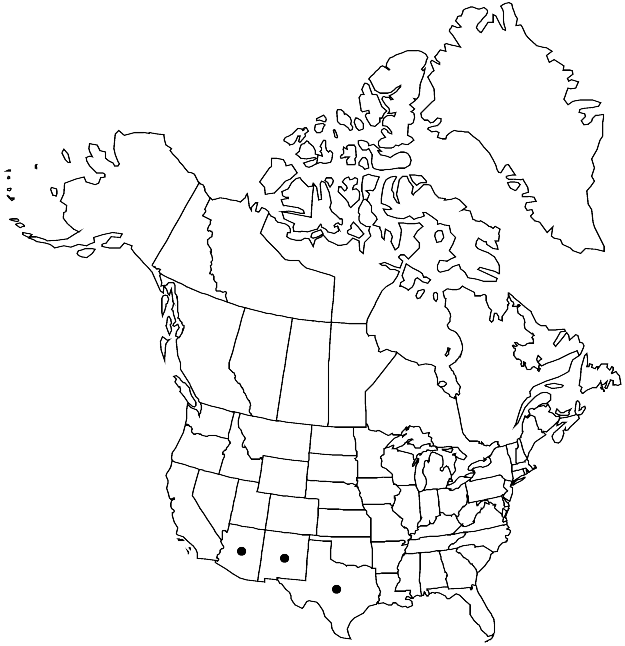Braunia secunda
Bryol. Europ. 3: 161. 1846.
Basionym: Hedwigia secunda Hooker Musci Exot. 1: plate 46. 1818
Revision as of 06:33, 30 July 2020 by imported>Volume Importer
Stems with stolons lateral on primary and secondary stems and branches. Leaves with margins recurved from base to apex; distal medial laminal cell-walls strongly sinuate. Sexual condition paroicous.
Phenology: Capsules mature spring.
Habitat: Shaded or exposed acidic cliffs, boulders, rock, igneous rock faces, shaded ravines, with Arctostaphylos in Pinus and Quercus woodlands
Elevation: moderate to high elevations (1500-2000 m)
Distribution

Ariz., N.Mex., Tex., Mexico, Central America, South America, Asia (India), Africa
Discussion
The leaf apices of Braunia secunda are longer and narrower than those of B. andrieuxii, and the leaf is more lanceolate and long-acuminate.
Selected References
None.
Lower Taxa
None.
"narrow" is not a number. "wide" is not a number.
... more about "Braunia secunda"
absent +
secund +
apiculate +
concolorous +
erect;widespreading +
hyaline +
excavate +
narrowing +
broadly decurrent;abruptly concave-auriculate +
secund +
absent +
stoloniform-flagelliform +
naked +
undivided +
developing +
covering +
pilose +
cucullate +
furrowed +
symmetric +
contracted +
stegocarpous +
immersed +
striate-wrinkled +
isodiametric +
absent +
differentiated +
thick +
dense +
hyaline +
often longer +
concolorous +
papillose +
Shaded or exposed acidic cliffs, boulders, rock, igneous rock faces, shaded ravines, with Arctostaphylos in Pinus and Quercus woodlands +
shining +
capillary +
lateral +
1-stratose +
papillose +
plicate-sulcate +
imbricate +
erect +
vegetative +
pellucid +
longer +
recurved +
revolute +
larger +
obscure +
3-4(-6)-papillose +
sparse +
sulcate +
narrow +
rigid +
sulcate +
rigid +
medium +
simple +
rounded +
absent +
many +
axillary +
absent +
foliose +
papillose +
Bryol. Europ. +
1846 +
straight +
stout +
single +
brown +
creeping +
lateral +
absent +
thick +
Braunia secunda +
Braunia +
species +
pellucid +
obscure +
yellow-hyaline +
long-filiform +
porose +
specialized +
absent +
porose-sinuate +
dense +
coarse +
large +